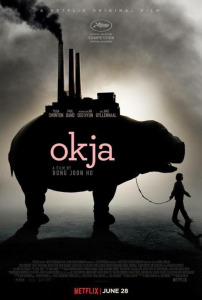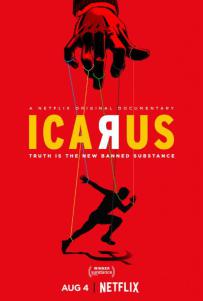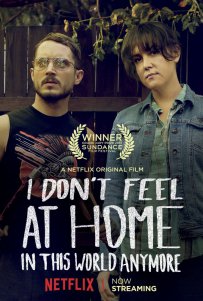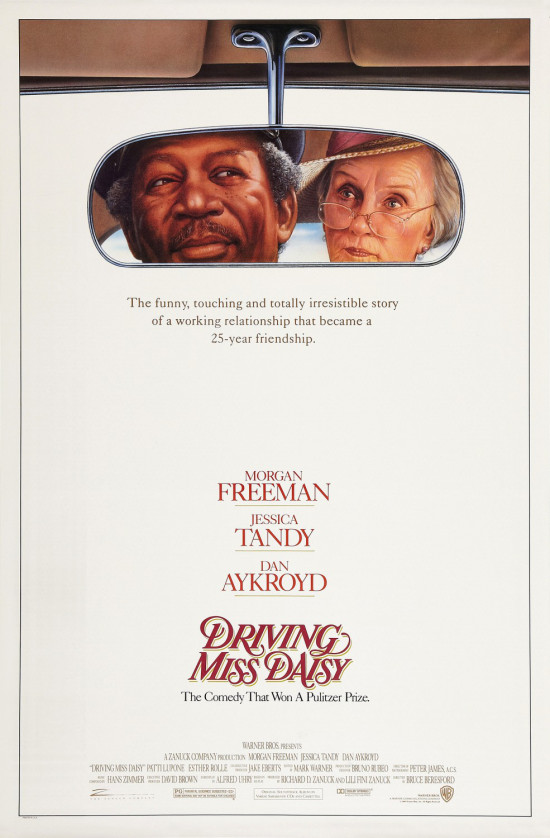Although Netflix has been in the business of making original movie content for about two years, it’s fair to say that 2017 is the year when they finally broke through as a major player on the movie scene in general. This year they are on track to release an astonishing 60 original narrative and documentary features. Furthermore starting with the 2017 Sundance Jury winner I Don’t Feel At Home In This World Anymore the caliber of films being released has also stepped up a notch as they have attracted projects with directors who have serious cinephile credibility like Bong Joon Ho and Noah Baumbach most notably.
Of course the success of Netflix has not come without controversy especially since the Netflix model does not include anything resembling a traditional theatrical release schedule. The most pessimistic view of this development is that Netflix will become the death of the viable profitability of indie to mid-budget movies and their more traditional distribution models. Additionally by eschewing the theatres completely, they see Netflix as rejecting the undoubtedly superior projection capabilities of the theatres for, in its worst form, the tiny screens on our phones as the standard method of distribution for movies. And finally, there has been criticism that Netflix does a poor job itself of promoting its own movies by burying it amongst the rest of its product and not even giving a hint when these movies are being released (unless you are a vigilant/overly obsessed film geek like me).
Of the major criticisms, I do agree with the final one as it can be infuriatingly frustrating to try and locate when these movies get released and exactly where to locate them, even in the “Netflix Originals” tab. But with respect to the many professionals to have thought about this, I have to disagree with the pessimism of the first two criticisms. And I disagree not with the assessment that this move by Netflix (and Amazon) fundamentally changes the way movies are distributed and watched, but I view that as a positive development for the movie industry especially in making niche content accessible to the widest possible audience.
I currently live on the outskirts of the Greater Toronto Area, which means that the theatres closest to me while fantastic facilities do not get anywhere close to the scope of movie viewing options that a major city would get. And as a stay-at-home dad of two young kids, the chances of me getting out to a theatre in the first place is a major undertaking that I manage to pull off maybe once or twice a month. Agonizingly the Toronto International Film Festival is an hour’s drive away which basically renders just agonizingly close enough for me to peruse their year-round world-class offerings but also far enough away to remain inaccessible to me.
I say all that because given these circumstances, it is precisely indie to mid-budget movies that I end up not getting to see in the theatres unless they have phenomenal reviews or great word-of-mouth. That also means that most of the other niche genres like art films or documentaries get shut out completely. It is at this exact juncture that Netflix (at least in 2017) has shown incredible promise by providing a “click-of-the-button” ease to seeing those kind of movies. For a cinephile with limited traditional viewing options like me this is a godsend and a goldmine.
Beyond the cinephile however, the greatest strength of Netflix’s strategy is that all of these movies are also available worldwide instantaneously. That means that for the price of a Netflix subscription (which runs cheaper that most movie tickets), movies by foreign art directors like Bong Joon Ho, indie directors like Noah Baumbach, and female directors like Angelina Jolie, and a treasure trove of documentaries (the most underrated genre in film) are permanently and globally accessible to whoever wants to seek them out costing nothing more than the time of the consumer to check these films out. This cannot be anything but a good thing to the advancement of the craft.
Of course, the problem still remains that for whatever reason Netflix is horrible at promoting their own movies. They drop their movies onto the service unannounced and even when they do it often gets buried due to its obtuse algorithm. To prove this point I tried to find Okja without typing it into the search bar. I had to scroll a good three minutes in Netflix’s “Originals” tab to find it. For an official Cannes film, that is a quite frankly unacceptable level of exposure (or lack of). So that is why I, the humble couch cinephile have decided to step in to sample, review, and recommend (or not) some of the stuff that Netflix has to offer. Depending how well this goes, this might just be a regular feature. Let’s get to it:

OKJA (2017) dir. Bong Joon Ho
Bong Joon Ho has made a career out of creating genre-bending but crowd pleasing fare whether with his monster movie/family drama The Host or more recently with his sci-fi thriller Snowpiercer. Okja finds Bong Joon Ho more or less up to his old tricks again, this time mashing science fiction and fantasy to weave a moralistic tale about the food we eat. Okja is a genetically modified pig that has been raised by Mija and her grandfather in the South Korean countryside using traditional methods. When Okja’s corporate owners come to claim her back and award her the winner of their global competition, Mija resists and tries desperately to get her back. This quest sets in motion a chain of events that puts her in the middle of a conflict between the enormous Mirando corporation (whose public faces are played by Tilda Swinton and Jake Gyllenhaal) and the Animal Liberation Front (consisting of Paul Dano and Steven Yeun among others). This movie is a constant swirl of changing tones, as the early comedic and heartwarming beginnings that focus on the relationship between Mija and Okja gives way to a much more grim affair by the end with a fairly heavy message. Unfortunately unlike in movies past, Bong Joon Ho doesn’t quite handle this juggling act quite as well with the first half of the movie being undoubtedly stronger than the second act which tries to expand the story and lay on the moral message thickly but ends up coming off the rails. At least Okja is a narratively ambitious and visually unique movie that continually piqued my interest, even if it doesn’t wholly succeed in its goals.
Rating: 7.5/10

ONE OF US (2017) dirs. Rachel Grady and Heidi Ewing
The remarkable new documentary from the makers of Jesus Camp finds the directing duo enmeshed in another religious subculture, being that of the Hasidic Jewish community that’s primarily based in New York. It follows the lives of three former Hasidic Jews as they deal with the ramifications of choosing to leave the fold. Along the way Grady and Ewing manage to uncover the seedier underbelly of the community known for its hyper-insularity and piety. The stories these three are shocking and tragic, especially in the case of Etty who divorces her abusive husband and finds herself entrenched in a bitter custody battle for her seven children against the resources of the entire community. They are also hardly surprising as the directors covered similar ground with Jesus Camp. Together these two movies pair well to show that when religion is used as a form of control, abuse of power is never too far behind. Yet where One of Us succeeds is in providing some semblance of a balanced view as to why the Hasidic Jewish community, who have historically suffered horrific tragedy of their own, fight so hard to protect their way of life and to pass that way of life onto the next generation. This was not an easy watch (which is par for course in the documentary category), but still very compelling.
Rating: 8/10

THE INCREDIBLE JESSICA JAMES (2017) dir. Jim Strouse
Take away Jessica Williams from this picture and it quickly reveals itself as a trite, formulaic, and syrupy romantic comedy that we’ve seen many times before, albeit with millennial window dressing. Yet it is precisely her addition that helps the movie rise ever so slightly above its stereotypical fare. She plays the titular Jessica James who is a struggling playwright who recently broke up with her long-time boyfriend and finds herself fumbling as she tries to return into the dating game. It is as prototypical a romantic comedy heroine role as you could possibly write, but in the hands of Williams she manages to make it interesting and nuanced to more than justify the movie’s existence. In a year of fairly impressive debuts, hers is one of the more impressive and it will be interesting to see how her career evolves from here on out. Of course it helps when her foil/love interest is Chris O’Dowd who has made a career of playing slightly acerbic and slightly lovable characters and puts in a workman-like performance here to also elevate the proceedings. Put together, the two help make the movie not a complete waste of time, but only just.
Rating: 6.5/10

ICARUS (2017) dir. Bryan Fogel
Icarus joins the company of other documentaries like last year’s Weiner where the filmmaker found themselves at the right place at the right time to document an explosive story. In this case Bryan Fogel started out by originally trying to expose how easy it was to cheat the sports world by doping himself and entering an amateur cycling competition. That story would be remarkable enough but along the way Fogel crosses paths with the incredibly charismatic Grigory Rodchenkov, who is the head of the Russian anti-doping program. And through that relationship, Fogel finds himself at ground zero when the story of the broad and expansive system of doping in Russian sports blows up as Rodchenkov comes forward as a whistle-blower. From there the documentary becomes a dangerous game of real-life cat and mouse as Russian officials try to cover up the most sensational and scandalous sports story of the 21st century that calls into question the legitimacy of the claim that any sport could possibly be “clean”. The documentary was endlessly compelling even as Fogel clearly spends too much time with his original idea and clumsily pivots to the much bigger story of Russian doping.
Rating: 8.5/10

FIRST THEY KILLED MY FATHER (2017) dir. Angelina Jolie
Angelina Jolie’s early directing career recently has been characterized by flawed films like the recent Unbroken which had great visual flare but was brought down by cliche-ridden plot. And at first glance, it seems like First They Killed My Father could fall under the same category as it details the real-life harrowing journey of Loung Ung who lived through and survived the rise of the Khmer Rouge in Cambodia. But surprisingly, and pleasantly so, Jolie manages to rid herself of her more schmaltzy inclinations for the most part and delivers an unsentimental and harrowing tale of one of the more forgotten tragedies of the 20th century. The strength of this movie is that it narrows in on Loung’s experience as a child which means that we don’t have any time to hear the grand moralizing of adults because we are too busy processing the viewpoint of a child who is seeing her world chaotically upended and is trying to survive its changes. That doesn’t make the story any less harrowing or heart-wrenching to watch, but it tells the story without resorting to trying to entertain us. This exclusively Khmer movie is exactly the kind of exciting project that would probably be DOA in a traditional theatrical release schedule, but through Netflix’s model can reach a wider audience.
Rating: 9/10

I DON’T FEEL AT HOME IN THIS WORLD ANYMORE (2017) dir. Macon Blair
The best (or worst) thing that I could say about this movie is that it thoroughly feels like an off-kilter Sundance film, and thus fairly worthy of the Jury Prize. Some of you may recognize first-time director’s Macon Blair name from his exceptional performance in Jeremy Saulnier’s viscerally violent mini-masterpiece Blue Ruin. I mention this because Blair has obviously gleaned a lot from working with Saulnier as his debut shares many stylistic similarities especially in the violence department. But what distinguishes Blair as being more than just a Saulnier clone is his odd-ball and dark sense of humour, perfectly personified in the hands of Melanie Lynskey and Elijah Wood as they enact vigilante justice over the theft of Lynskey’s laptop only to soon find themselves in over their head. In the end however, the movie can’t quite shake its Sundance tag and break out as a crossover hit on its own like Little Miss Sunshine did more than a decade ago. But as a movie you can check out at the click of a button, it is quite an excellent gem.
Rating: 7.75/10
SaveSave
SaveSaveSaveSaveSaveSave
Share this:




